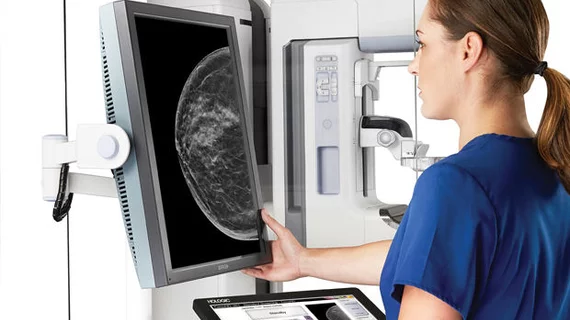Deep learning detects precancerous changes on mammograms
A mammography-based deep learning model was recently shown to detect precancerous changes on imaging in a racially diverse population of women, prompting experts to suggest that it could have utility in facilitating earlier diagnosis of breast cancer.
What’s more, the model proved beneficial in a large cohort that included women with benign breast disease and BRCA mutations. Experts detailed their work with the model (Marai) in a new paper published in Radiology: Artificial Intelligence on July 26.
Researchers included more than 6,000 screening mammograms acquired over a 14-year period from 2,096 patients in their analysis. Using area under the receiver operating characteristic curve (AUC) as a metric of performance, the team tested the model’s utility to detect subtle changes in the patients’ imaging. BI-RADS assessment categories also were used as comparison.
The model achieved one- and five-year AUCs of 0.71 and 0.65 for predicting breast cancer. It performed slightly better on exams of women without dense breasts compared to those with increased density, yielding AUCs of 0.72 versus 0.58. Compared to BI-RADS assessments, the model offered similar one-year predictions, but outperformed BI-RADS categories for longer term predictions (five-year).
Experts were able to best measure the model’s performance using images of the future-affected breast, suggesting that it was identifying early premalignant changes and could have utility in detecting cancers in their earliest developmental stages.
Corresponding author of the paper Dezheng Huo, with the Biological Sciences Division at the University of Chicago, and colleagues suggested that their results “support further examination of mammography deep learning for breast cancer risk prediction in high-risk, racially diverse groups.”
The study abstract is available here.

